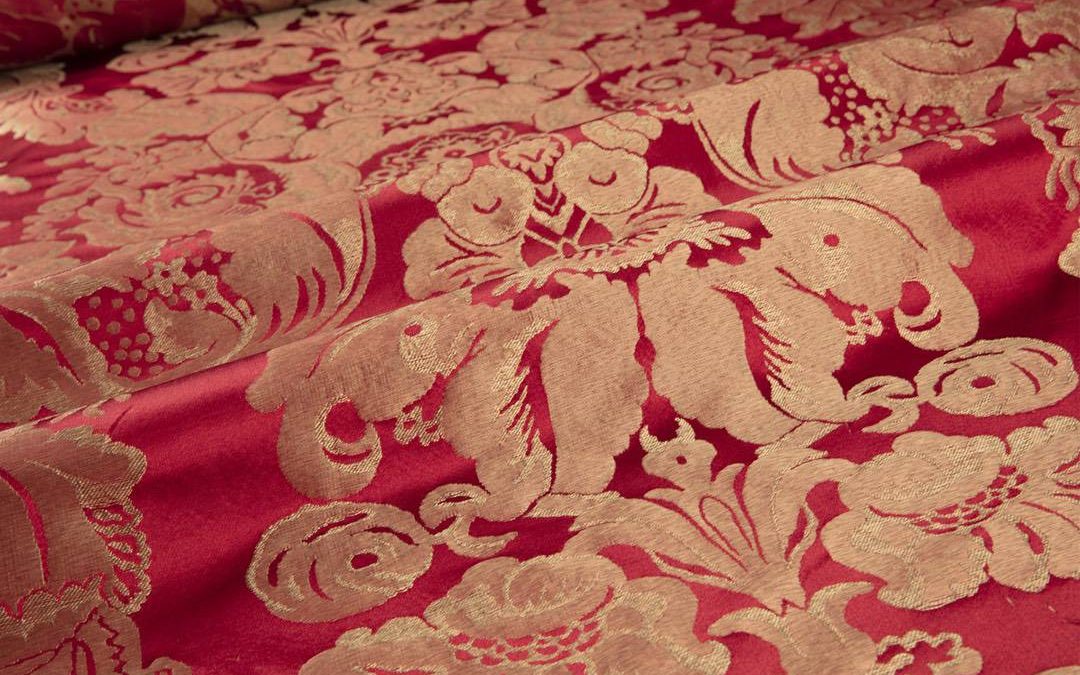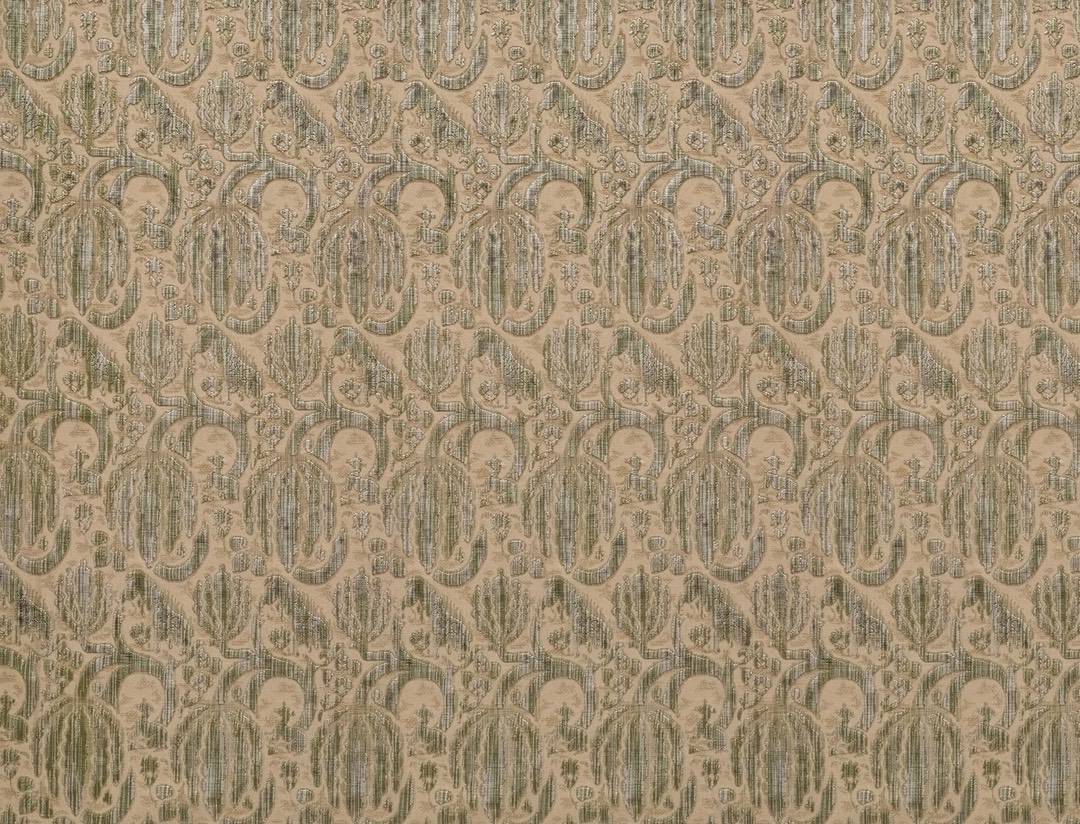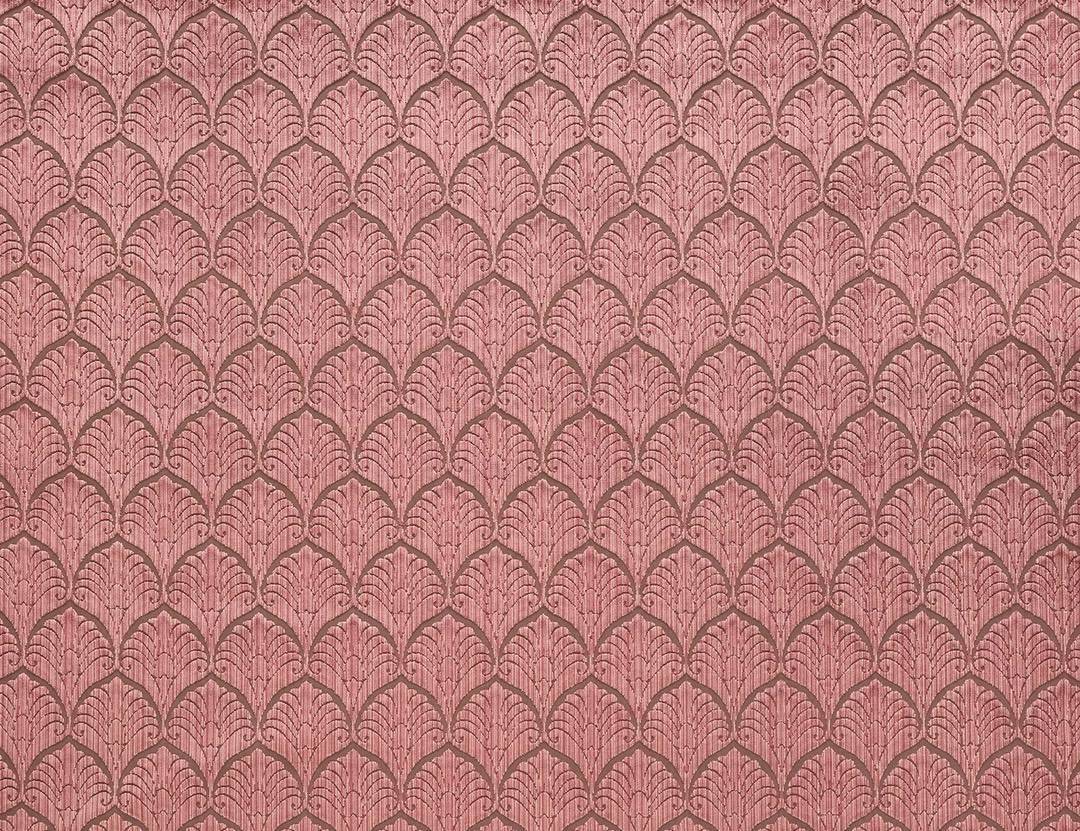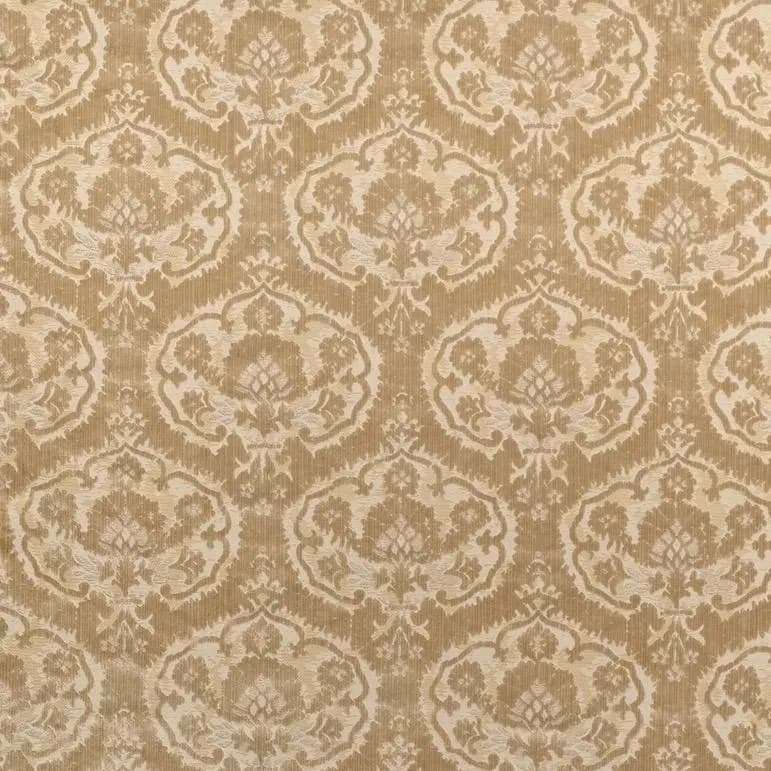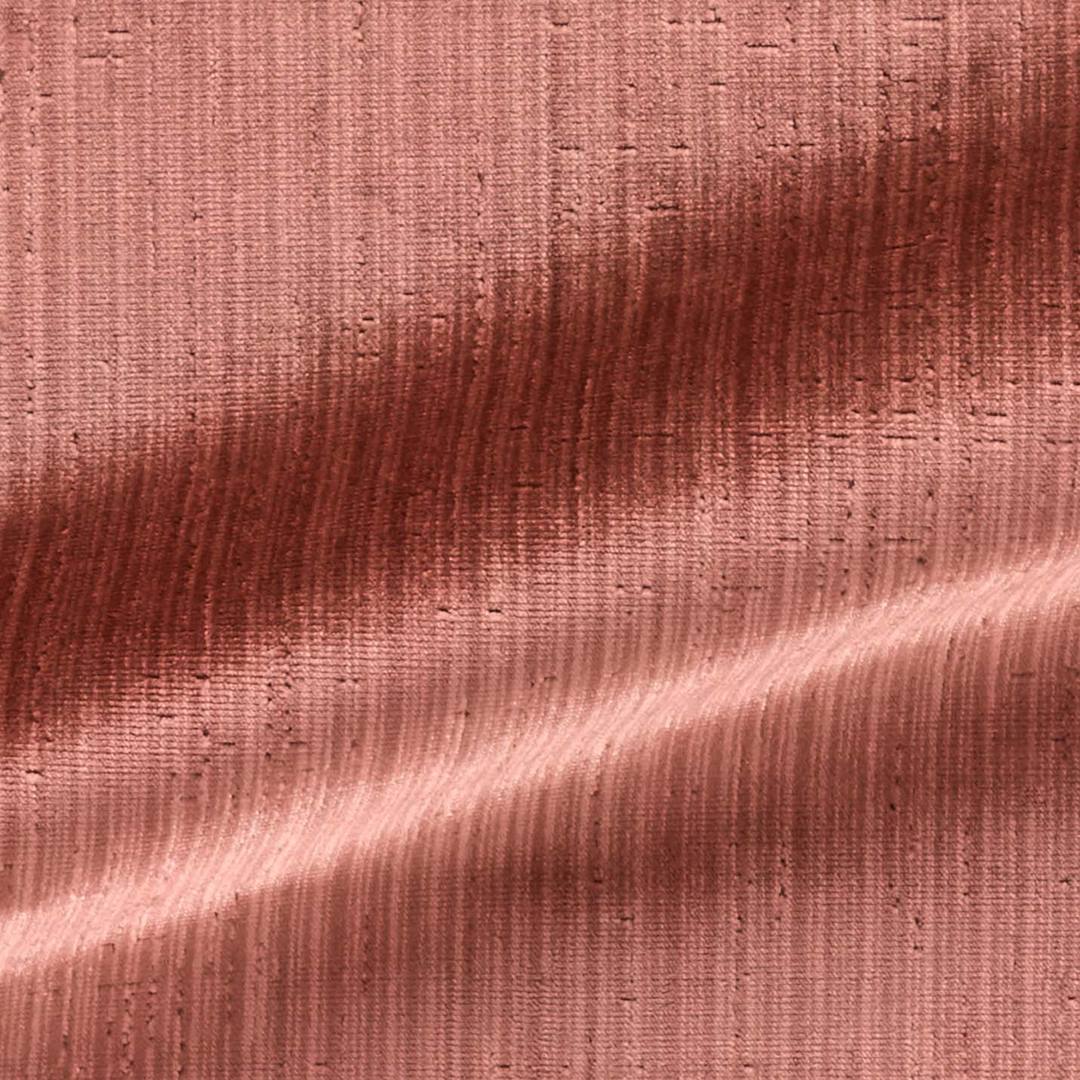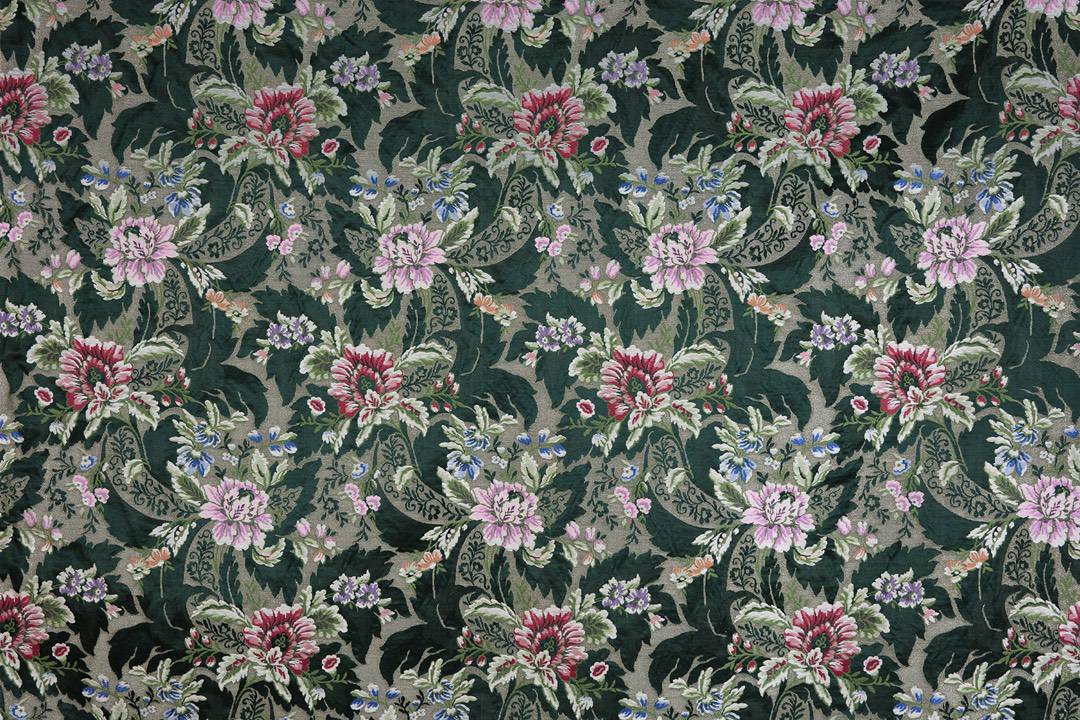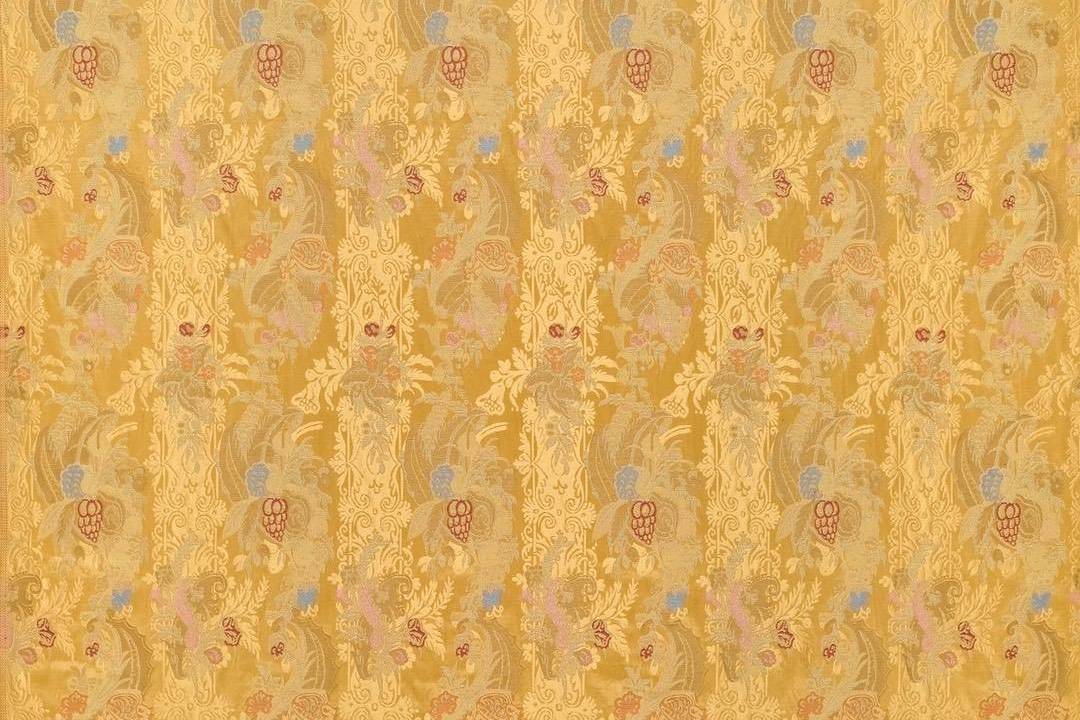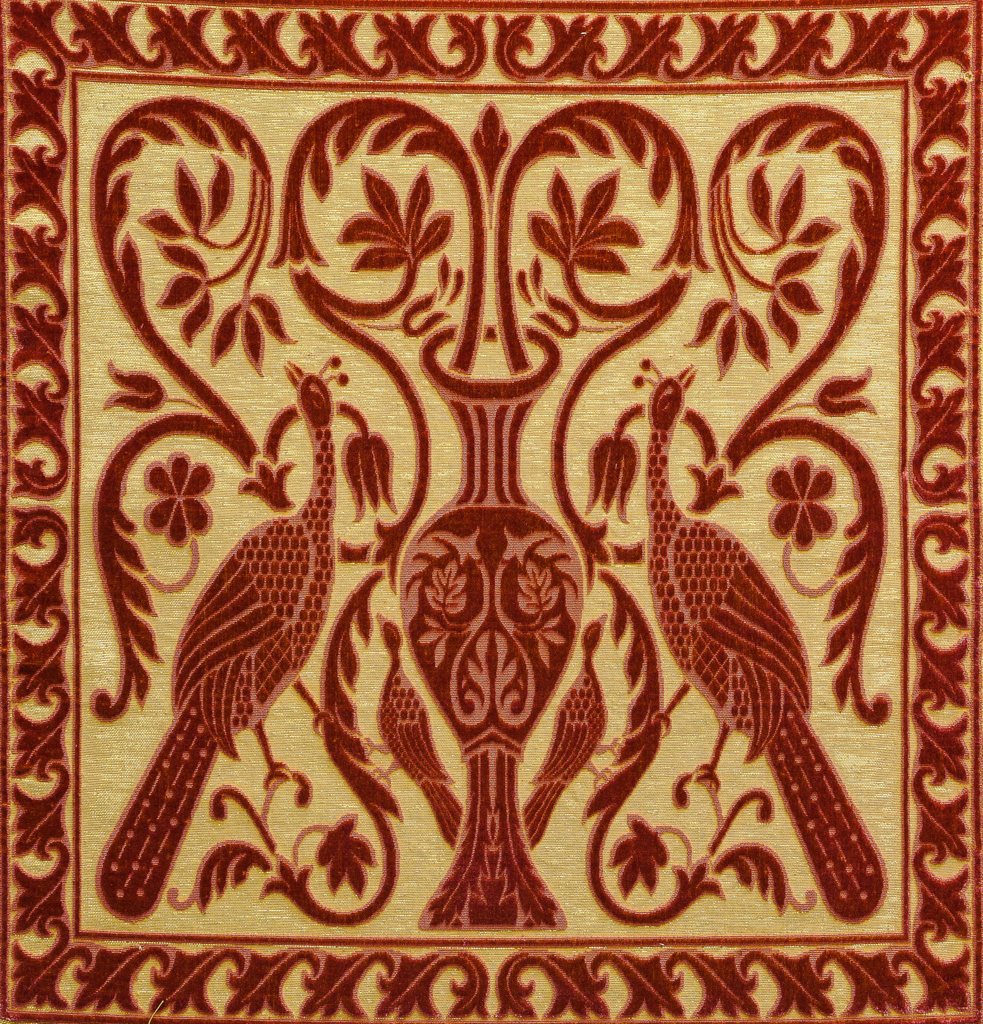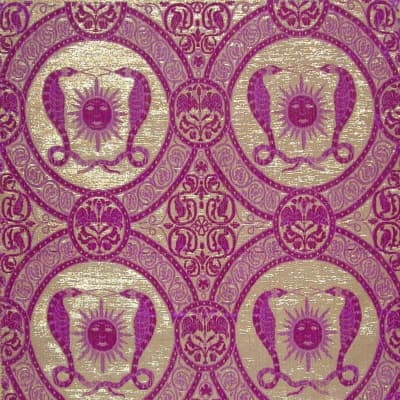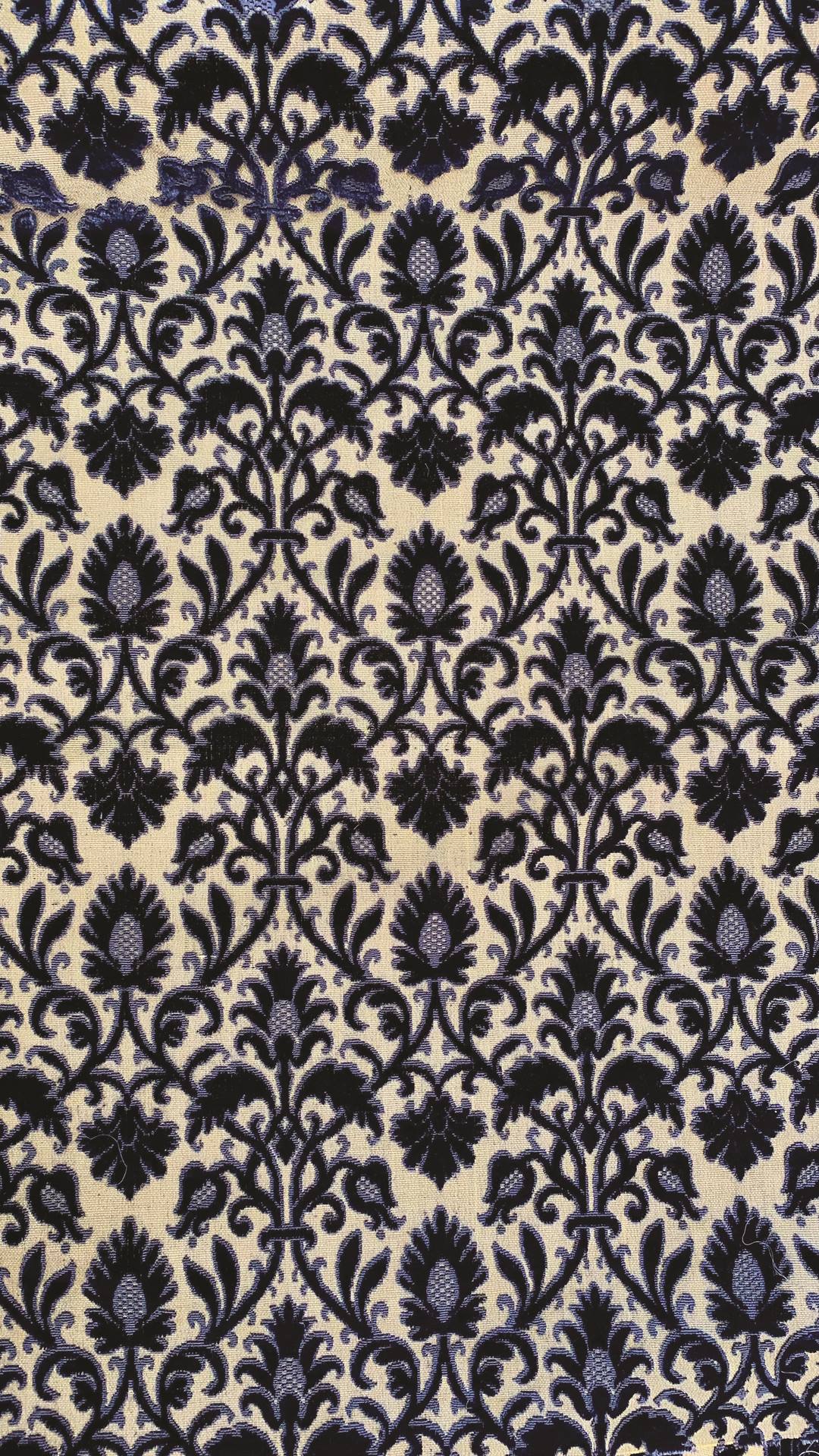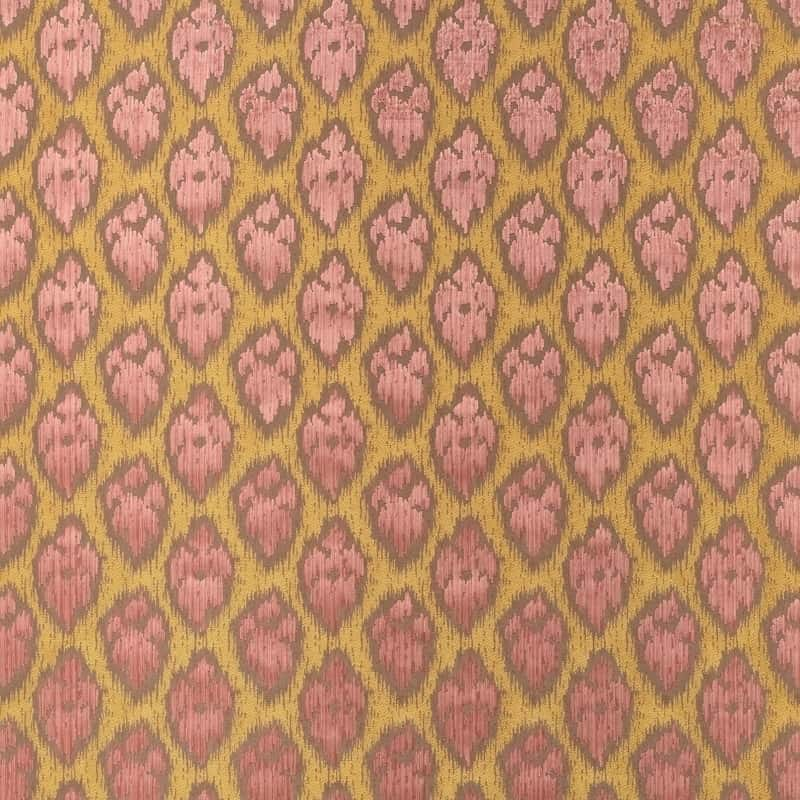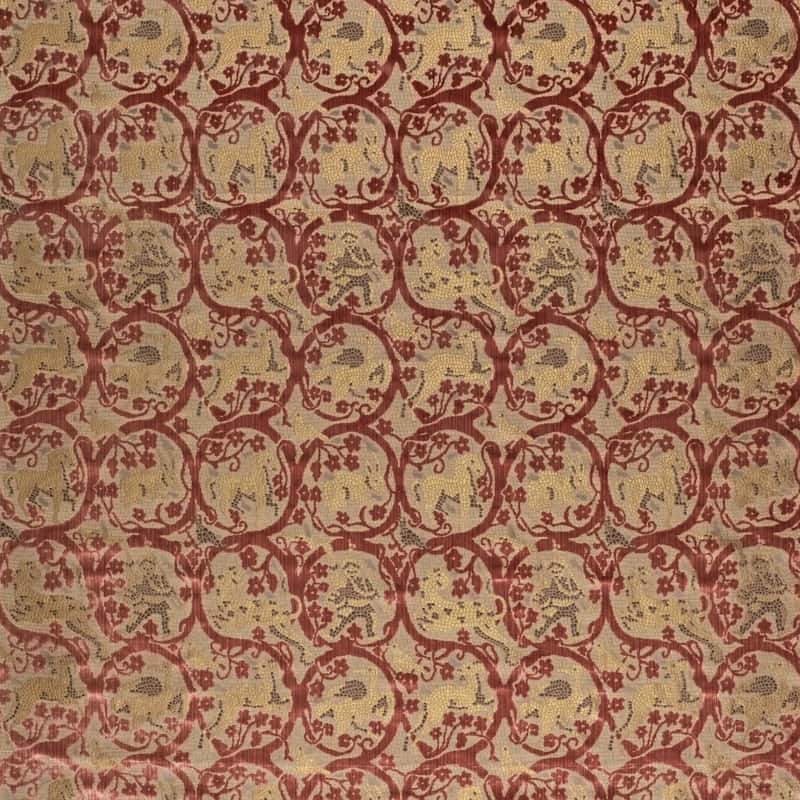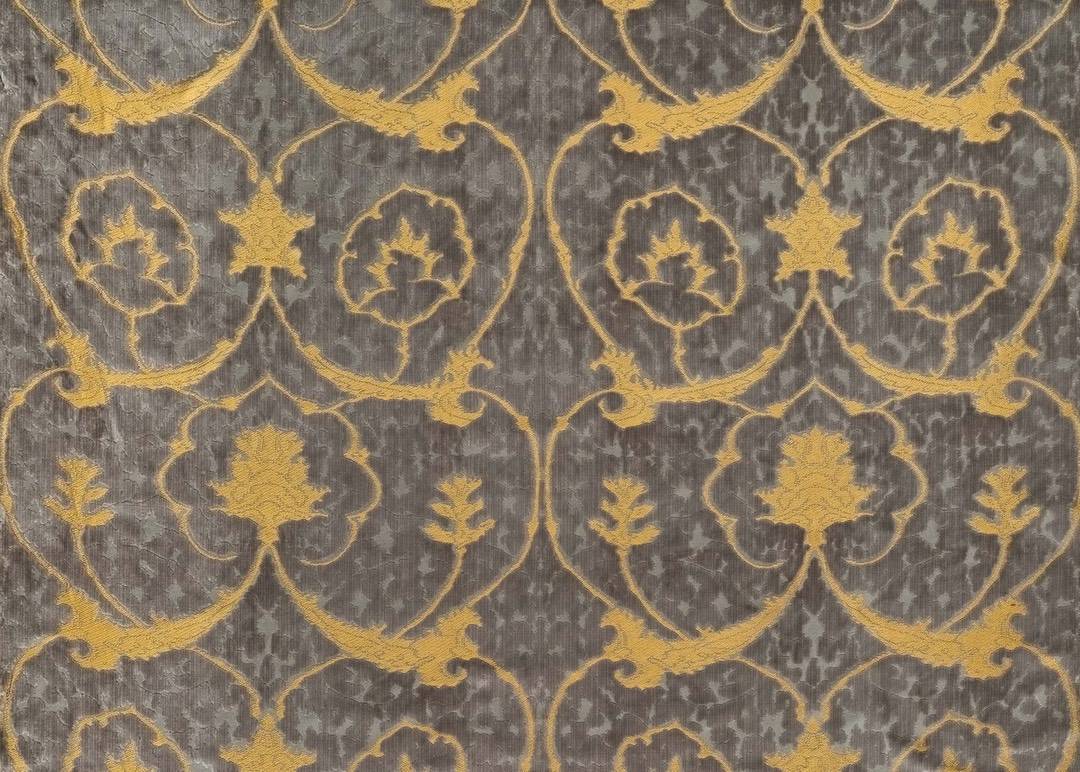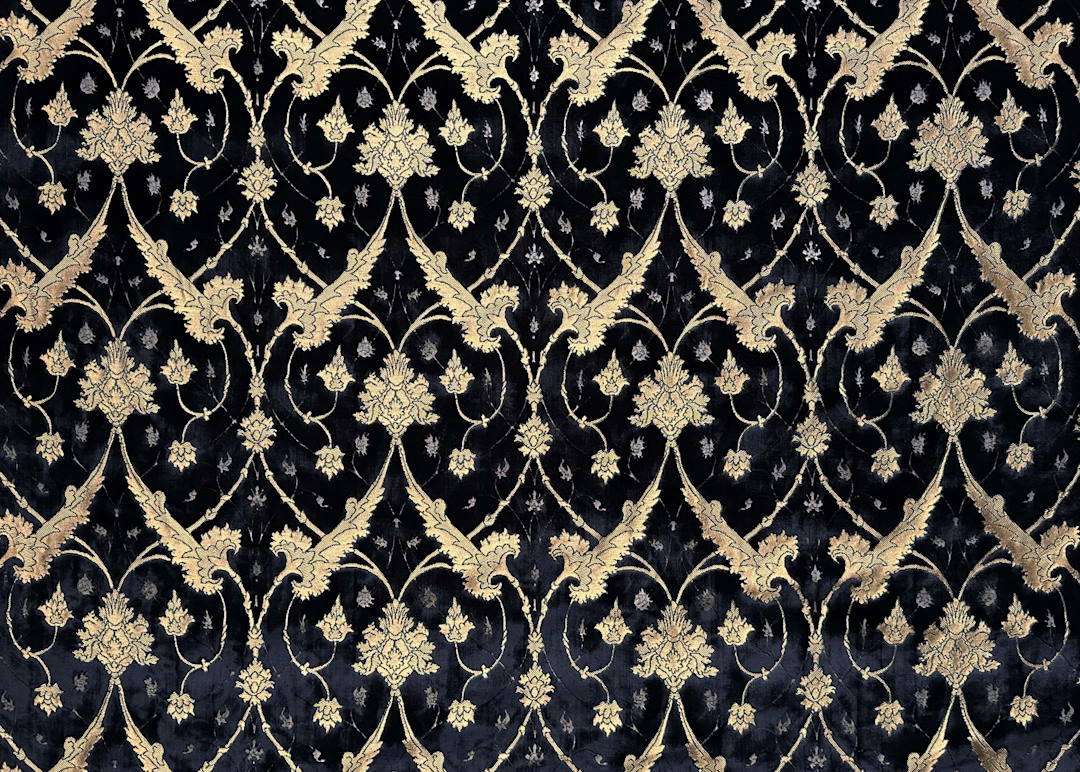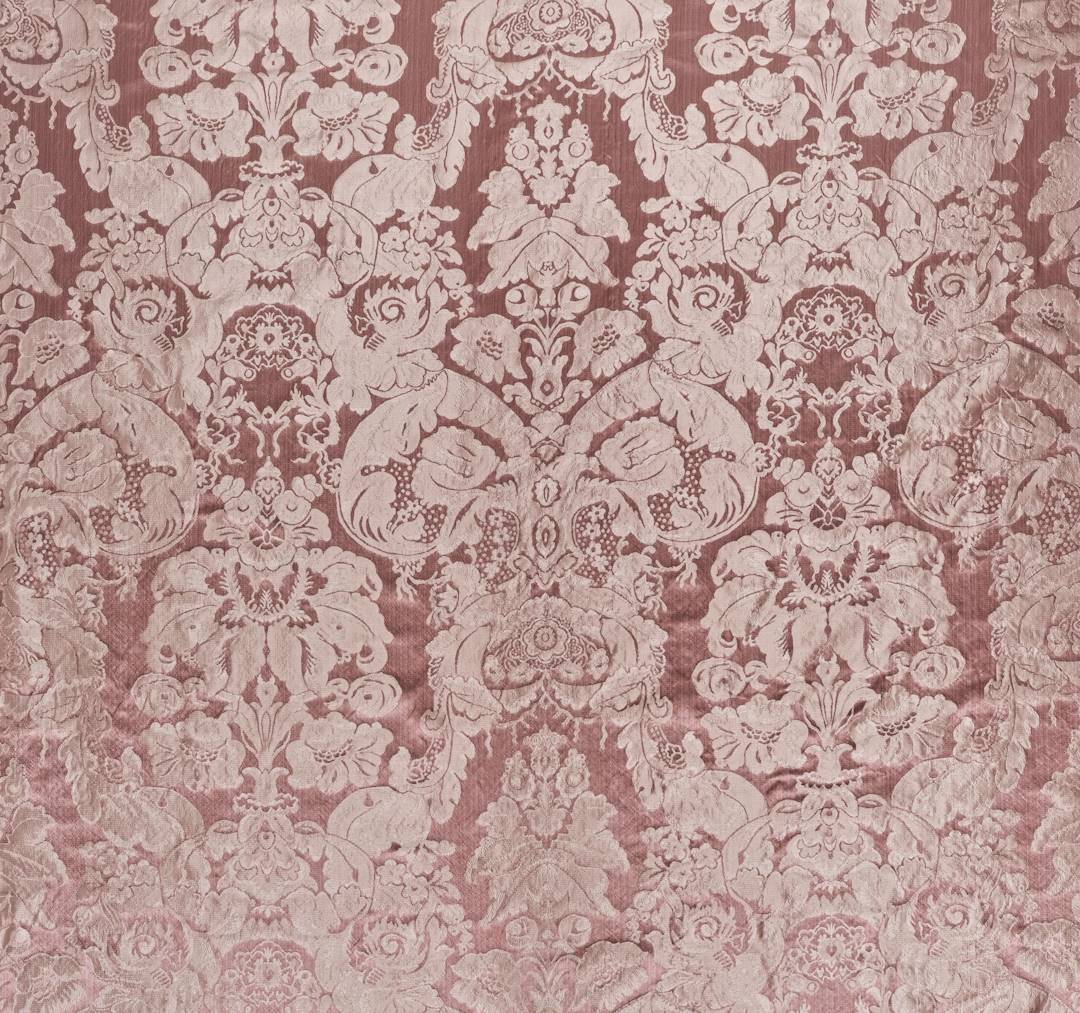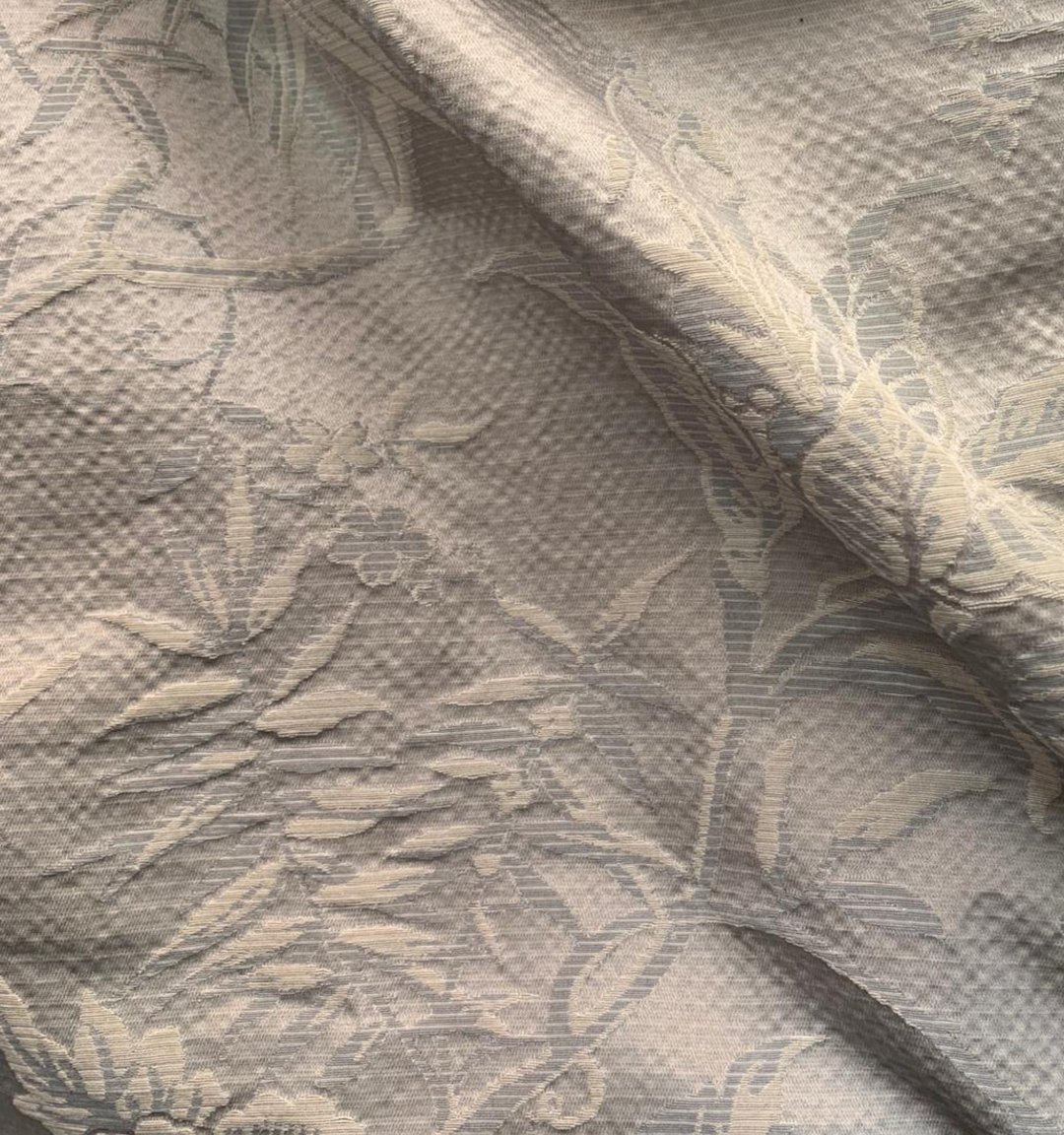In the descriptions of our fabrics, you will often find technical terms referring to specific processes: shiné, strié, lamé, lancé, and craquelé. These techniques have been developed to give our products unique characteristics. The purpose of this article is to clarify the meaning of these terms.
Shiné Velvets
Shiné velvets are characterized by their irregular shades. This effect is achieved by using a yarn dyed with different shades of the same color. The weaving of this variable-colored yarn creates velvets with irregular coloration and distinctive shading that enriches the pile and adds three-dimensionality to the design.
Our range of shiné fabrics includes heddle velvets in olive green and those in the velvets category.
It is important to note that the term “shiné” is not always explicitly mentioned in fabric descriptions, as is the case with the other special processes discussed in this article.
Strié Fabrics
Strié fabrics are characterized by the presence of regular stripes in different shades. These sharply defined vertical stripes are not the result of a single yarn dyed in several gradations, but of yarns of different colors. The precision of the stripes is the result of combining bobbins, some with darker yarns, and others with lighter yarns, each creating a specific color stripe along the entire length of the fabric.
This technique gives the fabric more depth and richness than a plain fabric, which may appear simpler. Stripes can be created in the pile of velvets, as well as in the satin and taffeta backgrounds that are characteristic of satins, lampas, and damasks.
Our range of strié fabrics includes all heddle velvets except olive green velvets, which are shiné, and satins, lampas, brocades, and damasks in several colors. In addition, most of our plain velvets are strié or shiné.
Lamé Fabrics
The term lamé refers to a fabric embellished with metallic threads. These may be threads or thin foils of precious metals, such as gold and silver, wrapped around silk thread, as found in cloth of gold. Alternatively, metallic or Lurex yarns can be used to add brightness and preciousness to the fabrics.
In our collection, examples of fabrics with metallic yarns are Broccato Lampas and Bizar Lampas.
As for handmade velvets, it is possible to notice golden or silver reflections on the background due to the presence of lamé. This effect can be seen in Pavoni soprarizzo velvet, Ornato soprarizzo velvet and Maraja soprarizzo velvet.
Lancé Velvets
Lancé velvets are characterized by the presence of a lancé weft, an additional element to the basic weft that helps to structure the fabric. This feature is achieved through the use of an additional shuttle.
In the context of handmade velvets, lamé also takes on a lancé connotation. This is due to the weaver’s use of a complementary weft intended for the metallic yarn component of the design. An emblematic example is the Rinascimento soprarizzo velvet, which has untied wefts, an effect that can be defined as lancé.
Rinascimento Soprarizzo Velvet in Blue
Lancé heddle velvet is characterized by the presence of a flare around the decorative motifs, which makes them stand out against the golden yellow background, giving them greater depth and contrast. This texture can be described as lancé.
Mosaico Lancé heddle velvet has lancé wefts, or additional wefts that contribute to the pattern. This is especially evident in the animals and other subjects that are characterized by a pattern that mimics mosaic tiles, made precisely from the thrown wefts.
Gotico heddle velvet and Ca d’Oro heddle velvet also have lancé wefts that add detail to the design, although this feature is not specified in the description.
In general, any velvet that has an additional weave as well as the basic weave that creates a decorative effect can be described as lancé.
Craquelé Fabrics
The term craquelé, which is of French origin, can be translated into English as “cracking” or “textured.” Craquelé fabrics do not have a smooth, uniform appearance, but rather a texture reminiscent of hammered leather.
This technique gives silk fabrics a superior depth and three-dimensionality as light is reflected more richly, creating a subtle effect that distinguishes the fabric from a plain satin.
This textural characteristic is the result of the weaving process, not the use of different colored yarns. In the past, a special tool was used to achieve this effect by pulling a weft thread to slightly curl the bottom of the fabric. Today, it is achieved with different techniques.
Our craquelé fabrics with a textured effect include 31089 R Craquelé Damask, Giardino 33077 Craquelé Damask, Grottesche 31035 Craquelé Damask, and Paradiso 31214 Damask.

